Challenging Africa's albino stereotypes
- Published
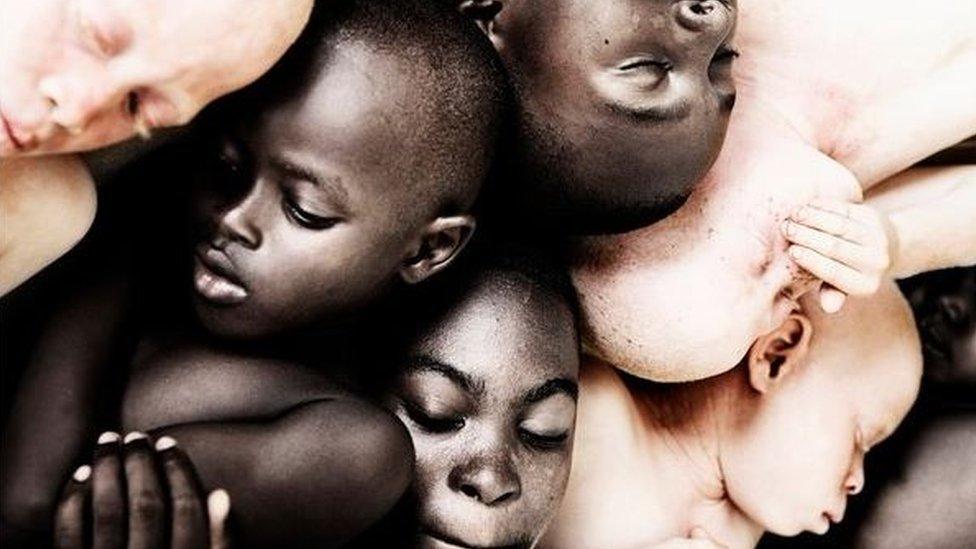
"We may not have it all together, but together we have it all," was the caption tweeted with this photo.
The superstitions about albinos in Africa are plentiful and dangerous.
In Tanzania last year, a 6-year-old boy had this arm chopped off, external by witch doctors who believe potions and charms made from the body parts of albinos are guaranteed to bring success.
"There is also a belief that having sex with a person living with Albinism can cure HIV; a superstition that has increased cases of rape, external and infection among Albinos," says Kenyan student Peter Kiprop Koima. He is responsible for the creation of the #AlbinismIsJustAColour hashtag, which trended in Kenya this week.
Koima, who lives in Nairobi, told BBC Trending that he first became interested in the issue of albinism when he heard of a woman in a village outside the capital who "gave birth to an albino kid. She felt like she had been 'bewitched' and she didn't want to keep the kid. She was contemplating for murder." But he and a group of his friends approached her to give her support, "that made her she think about the child positively. But we still have the challenge to make sure the child is integrated with other kids who don't understand albinism."
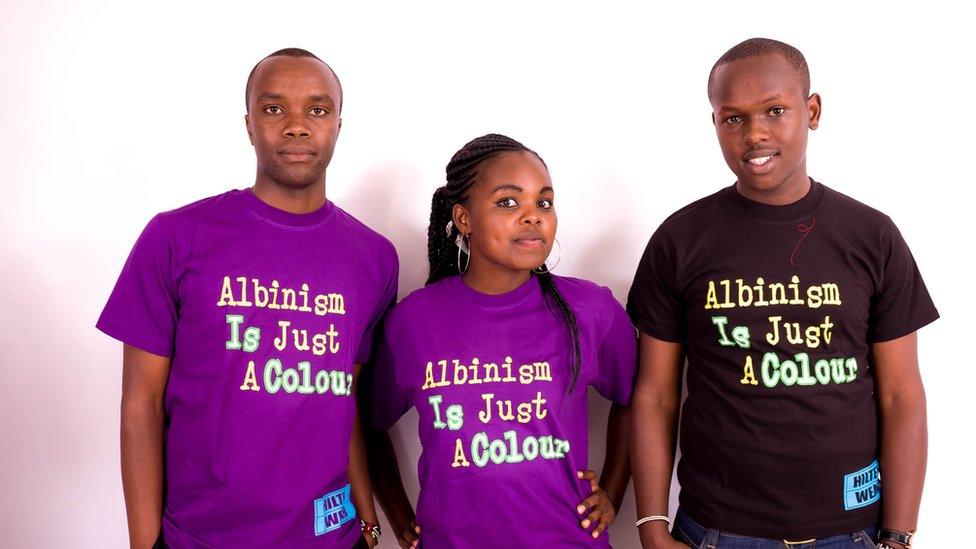
Peter Kiprop Koima (right) and his friends are helping a local school for albino children with their Albinism Is Just A Colour campaign
So he created the #AlbinismIsJustAColour hashtag because "I want our community to appreciate the beauty in albinism." Many used the hashtag to do just that.
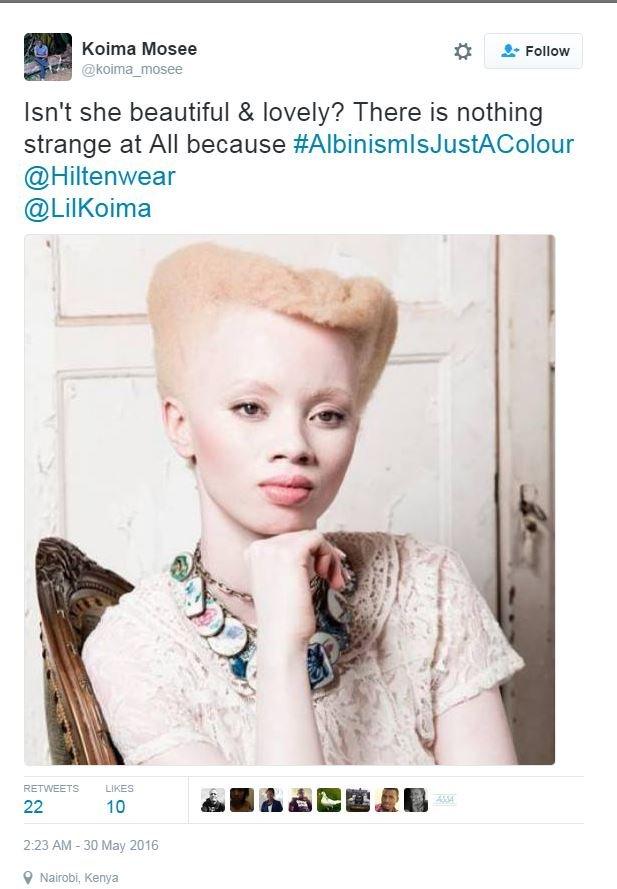
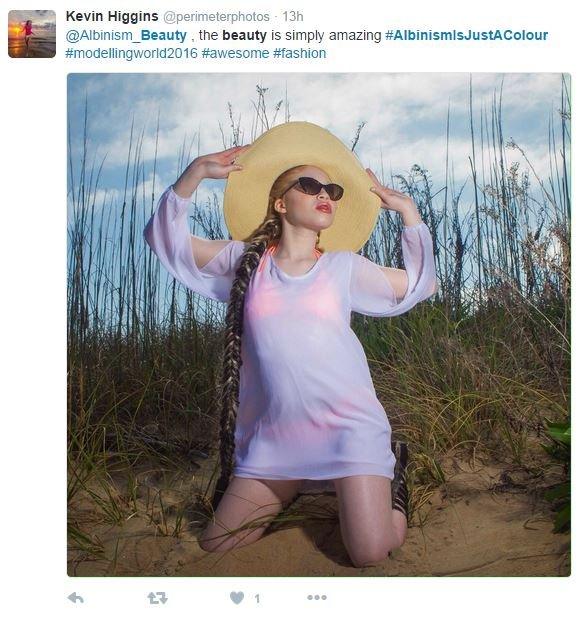
Around one in 20,000 people around the world are born with oculocutaneous albinism, which is caused by a lack of the pigment melanin, that gives hair, skin and eyes their colour. And some who used the hashtag wanted to stress that albinism is just a skin condition (Although it is important to note that there are health implications too; albinism in Africa brings with it an increased chance of developing fatal skin cancer, and the lack of pigment to protect eyes against the bright sun can cause sight problems).


However, there are more serious issues to contemplate. Celestine Mutinda, external, who has shared the hashtag and also has albinism, told BBC Trending "some of us are scared of walking along the streets of Nairobi. Sometimes while walking some people do say 'this is money'. They believe that albinos can be sold. Some albinos end up isolating themselves because of discrimination."
A study, external by albinism awareness group Under the Sun found that there were a total of 448 reported attacks on Albinos in 2015, across 25 African countries. The group said that the attacks constituted "mutilations, violence, rape, attempted abductions," and that the "actual number of attacks & killings of Albinos are likely much higher than indicated since many are never reported or documented."
The situation is particularly dire in Malawi. Last year a United Nations human rights expert warned that albinos in the risk what she described as "systematic extinction", external. Ikponwosa Ero, herself an albino, said , externalthe country's 10,000 albinos were becoming "endangered" because so many of them were being killed. This coming week, Amnesty International, external will be releasing a report concentrating on the violence against albinos in Malawi.
And these are some of the reasons that Peter Koima and his friends decided to create this hashtag. They will also be organising events at a local school for albino children in the Rift Valley valley called the Illula Albinism Centre. "Our main aim is to make sure they have equal opportunities when growing up, competing for jobs, everything," he told BBC Trending.
Blog by Megha Mohan, external
Next story: The curious case of the Turkish President's degree
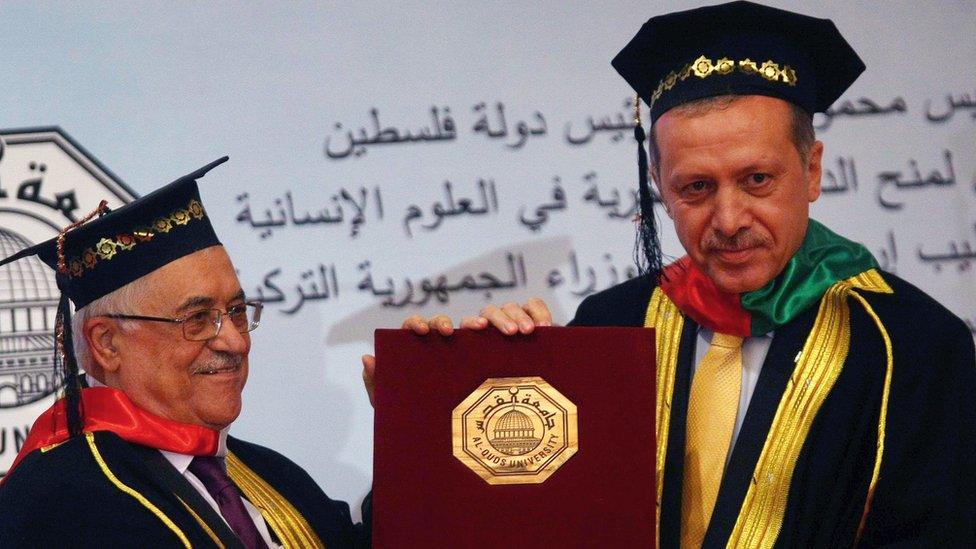
Turkey's President Erdogan faces calls to prove that his university degree is genuine.READ MORE
You can follow BBC Trending on Twitter @BBCtrending, external, and find us on Facebook, external. All our stories are at bbc.com/trending.